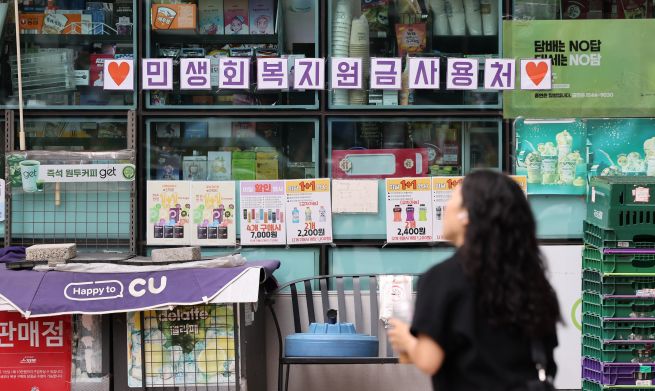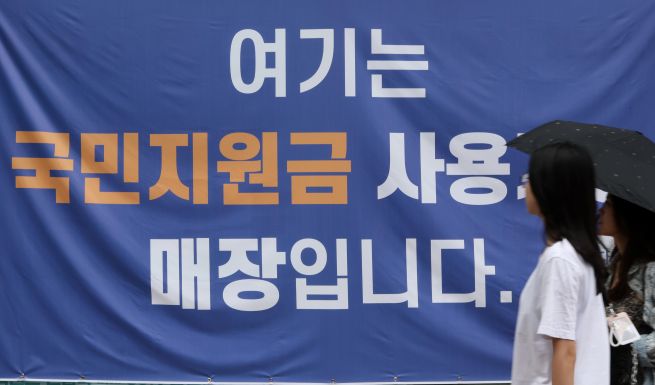
As the consumer coupon distribution approaches, the convenience store industry is also anticipating a boost in sales. (Yonhap)
SEOUL, July 21 (Korea Bizwire) — As South Korea prepares to roll out its nationwide consumer coupon initiative aimed at reviving domestic spending, some foreign residents, including permanent residents and marriage immigrants, are set to benefit from the program for the first time.
Beginning July 21, eligible residents can apply for the consumer coupons, which offer ₩150,000 to ₩500,000 per person to stimulate economic activity amid continued concerns over sluggish growth. Applications for the first round, open to all citizens regardless of income, will run through September 12. A second round, targeting the bottom 90% income bracket, will begin on September 22.
While foreign nationals are generally excluded from such benefits, the Ministry of the Interior and Safety confirmed that those listed on a Korean household registry and enrolled in national health insurance are eligible. This includes permanent residents (F-5), marriage immigrants (F-6), and recognized refugees (F-2-4).

Ahead of the July 21 launch of President Lee Jae-myung’s “Consumer Coupon for Livelihood Recovery” program, optimism is growing among traditional markets, neighborhood grocers, and convenience store operators about a potential economic rebound. Aimed at stimulating domestic consumption, the government plans to distribute up to ₩550,000 in coupons per person over two phases. The photo shows a notice posted at a shop in Seoul indicating it as a designated location for using the consumer coupons. (Photo courtesy of Yonhap)
The inclusion of refugees follows a 2023 Constitutional Court ruling that found it unconstitutional to exclude them from the 2020 emergency COVID-19 relief funds.
As of May 2025, South Korea has approximately 154,000 permanent residents, 184,000 marriage immigrants, and 1,600 recognized refugees, according to immigration authorities. The government estimates about 358,000 foreign residents meet the criteria for the consumer coupon program.
In response to growing interest from eligible foreigners, local governments have distributed English-language guides explaining application procedures and usage locations.
However, some experts argue the policy still falls short. “It’s a step forward compared to the COVID-19 aid program, but it’s incomplete,” said Kim Do-kyun, a special professor at Jeju Halla University. “Foreigners who pay local taxes, even if they are not permanent residents, should have been included as well.”
The consumer coupon initiative reflects South Korea’s evolving approach to inclusivity in its welfare programs, while sparking fresh debate over the boundaries of economic support for its increasingly diverse population.
Ashley Song (ashley@koreabizwire.com)
